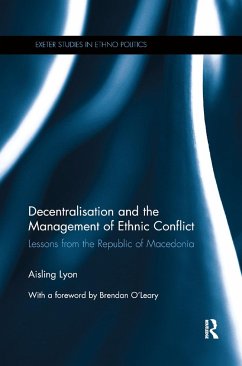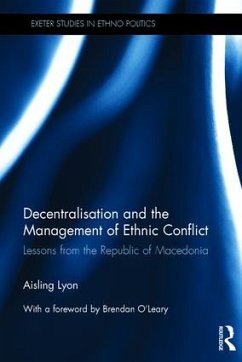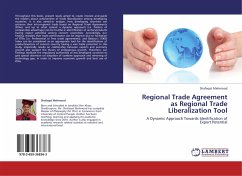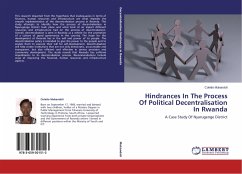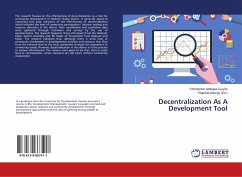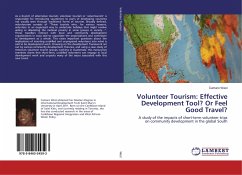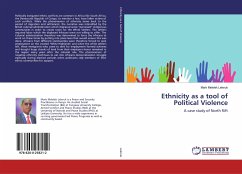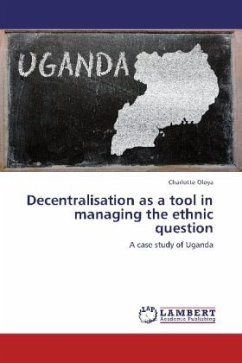
Decentralisation as a tool in managing the ethnic question
A case study of Uganda
Versandkostenfrei!
Versandfertig in 6-10 Tagen
32,99 €
inkl. MwSt.

PAYBACK Punkte
16 °P sammeln!
Several Countries in the world are ethnically plural. While in some Countries this ethnic plurality has not proved to be a major challenge, many Countries, particularly in Africa are struggling to manage the ethnic question. Countries have employed different tools such as suppressing ethnic minorities, creating an ethnically neutral state or separating state and ethnicity to manage the ethnic question. This, however, has served as a recipe for disaster. Uganda is such a state. It has faced grave challenges in managing the ethnic question since colonialism. Fifty years after attaining independe...
Several Countries in the world are ethnically plural. While in some Countries this ethnic plurality has not proved to be a major challenge, many Countries, particularly in Africa are struggling to manage the ethnic question. Countries have employed different tools such as suppressing ethnic minorities, creating an ethnically neutral state or separating state and ethnicity to manage the ethnic question. This, however, has served as a recipe for disaster. Uganda is such a state. It has faced grave challenges in managing the ethnic question since colonialism. Fifty years after attaining independence, the notions of cultural separatism and internal colonialism have become apparent in the government decisions on who to appoint to what position of authority, where resources should be utilised, among others. Thus, it is ethnic consciousness and not one s ability or expertise that determines who is appointed to what position of authority. Using Uganda as a case study, this book aims to look at how decentralising fiscal, political and administrative responsibilities to lower levels of government can create amicable national situations and thus, manage the ethnic question.



